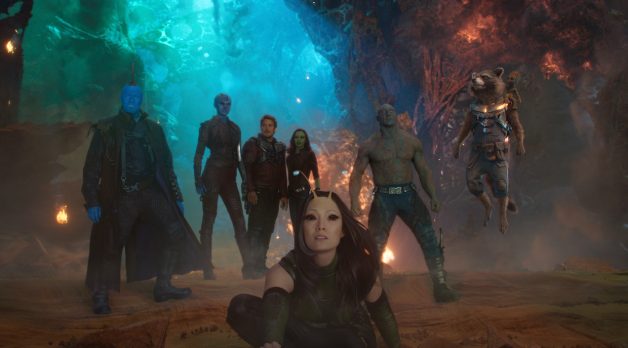Henry Braham BSC talks ACES on Guardians of the Galaxy Vol 2
Thanks to Filmmaker Magazine for this informative article:

DP Henry Braham on Shooting Guardians of the Galaxy Vol. 2 with the First Weapon 8K Vista Vision Full Frame Camera | Filmmaker Magazine
Compared to the rest of the Marvel Cinematic Universe, with its squeaky clean Captain America and solemn United Nations accords, the Guardians of the Galaxy — a rogues’ gallery of smugglers, thieves and assassins — are outliers. Yes, by the end of Guardians Vol. 2 the titular team are two-time galaxy savers. But for Rocket, the genetically enhanced trash panda voiced by Bradley Cooper, that just means they can jack up their rates. Guardians’ departure from the status quo of Marvel’s ever-bloating Avengers coalition – which they will no doubt eventually be subsumed by – extends to behind the camera as well. Since Marvel abandoned 35mm around the beginning of its “Phase 2” slate, the Arri Alexa has been the studio’s camera of choice. But for Guardians Vol. 2 cinematographer Henry Braham defected to Red, becoming the first DP to shoot a feature with the company’s new Weapon 8K Vista Vision full frame camera. The British cinematographer — a veteran of VFX spectacles such as The Golden Compass and The Legend of Tarzan — spoke to Filmmaker about christening the new camera. Filmmaker: Just so I’m understanding the specifics of the new Vista Vision camera, it’s a Weapon brain with a larger cut of the old Dragon sensor as opposed to the new Helium sensor that’s in Red’s Weapon 8K S35? Braham: That’s correct. It was in prototype form when we were first looking at it and we worked for about three months with Red to get the camera ready to shoot a movie like Guardians. Filmmaker: How close were you to the start of principal photography when you committed to using the camera? Braham: We started shooting in February of 2016 and we’d made a choice about the camera by September of 2015. At the time Red only had one of them. Filmmaker: Wait, there was literally one in existence when you pulled the trigger to shoot Guardians with it? Braham: Yes, one prototype — and a long list of things that we needed to work on together with Red in order to make sure the camera would be suitable. But I was confident that we could get it worked out between myself, the Red guys, the visual effects team and the postproduction people at Marvel. Filmmaker: How did you first get your hands on the prototype? Braham: Marvel has made a lot of really fantastic and successful movies on the Alexa. That’s a system that they know very, very well and that they trust. And the Alexa 65 produces a stunning picture, there’s no two ways about it. The difficulty for me in using the Alexa 65 for Guardians was the physicality of that camera. It’s a very big and heavy camera. So I was looking for something that would deliver the same image quality as the Alexa 65, but was physically smaller. And that’s what led me to sit down with [Red Digital Cinema president] Jarred Land. I’d had a good experience shooting The Legend of Tarzan on the Red Epic Dragon and [the team at] Red had responded very well to things that I needed changed in that camera to make it suitable for that movie. So I went to see Jarred and talked to him about what I was looking to do on Guardians and he put a black box on the table in front of me and said
DP Henry Braham on Shooting Guardians of the Galaxy Vol. 2 with the First Weapon 8K Vista Vision Full Frame Camera
ACES call out from Braham:
“That dailies grade provides a very good idea of how the film is intended to look at the end, which is important on a film of this scale where there are so many people that need to understand the visual intent. So a compositor that may be working in New Zealand or Toronto or London or some other disparate part of the world is working from the same basic starting point as everyone else. We used the ACES pipeline as well, so that all the decisions that were made in grading the dailies got carried all the way through to the final DI. Therefore the final DI becomes a process of making things better rather than starting from scratch.”
